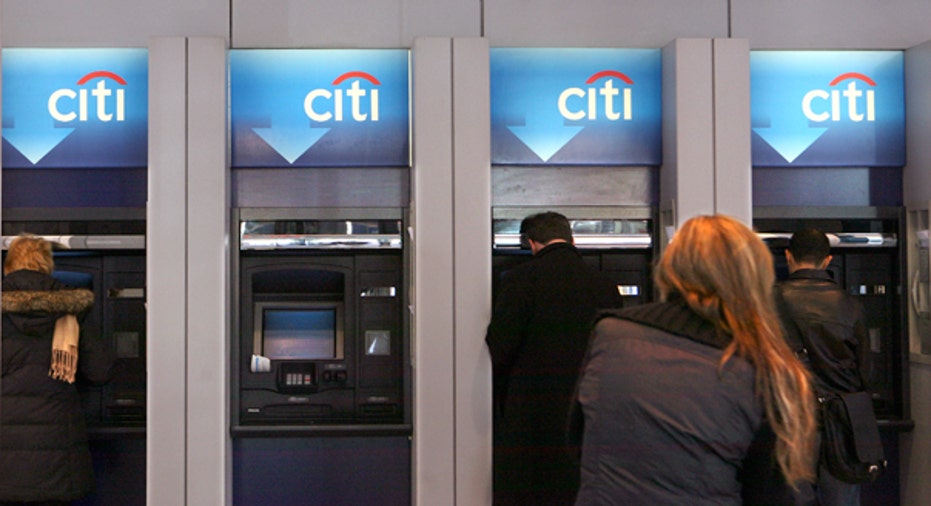Five Warning Signs it's Time to Switch Banks

Time to Switch Banks?
Thinking of switching banks? You're not alone.
According to a J.D. Power and Associates survey released in February this year, 9.6% of customers had switched banks during the past 12 months. That figure is on the rise, up from 8.7% in 2011 and 7.7% in 2010, according to the survey.
And while reasons for switching banks vary, experts warn that certain indicators mean you should leave your current bank, and do so quickly.
To keep your money safe and satisfaction high, here are five signs it may be time to store your cash in a different bank.
The FDIC Doesn't Approve
To see how your bank is holding up financially, routinely check the Federal Deposit Insurance Corp.'s website, says Jim Angleton, president and CEO of AEGIS FinServ Corp., a firm that provides debt resolution and other financial services.
There you can see if your bank is maintaining its FDIC insurance. This insurance covers all deposit accounts, including checking and savings accounts, money market deposit accounts, and certificates of deposit. The standard insurance amount is $250,000 per depositor per insured bank. That means if you have $250,000 or less stored at your bank and the bank fails, you'll still receive your cash.
On the other hand, if your bank is not maintaining its FDIC insurance, consider it a red flag. If the bank goes under, none of your deposits will be insured.
Fees, Fees and More Fees
Currently, larger banks are making a push to increase fee revenue to offset the loss of credit card fees associated with regulatory changes, says Randy Jarvis, president of Union National Bank in Sparta, Wis.
This means you might see new charges popping up, such as maintenance fees on debit cards and checking accounts, ATM fees, online banking fees and transaction fees.
While banks vary, you might find that a local institution has lower costs, Jarvis says. "Most community banks are more hesitant to introduce such fees, and have typically had lower fees even before the regulatory changes," he says.
You've Changed
Maybe at one time, your bank fit your lifestyle perfectly, yet shifts in your job responsibilities, working hours and even your marital status can lead to a less-than-ideal arrangement.
Say you belong to a local credit union, but now you travel frequently for work. You may need a bank with a national presence that has branches in the cities you visit most often, says Michael Hermens, president of Finance Forward LLC, a financial advisory firm in Dallas.
The same holds true for bank hours. If you regularly leave the office at 6:30 p.m. and want to swing past the bank on your way home, you might need a place with extended hours.
For newlyweds with accounts set up at different banks, it may be time to compare the two options. Sort through the costs of each, such as what you'll pay for checks, wire transfers, overdraft protection charges and account maintenance. If the costs at one or both banks seem too high, take it as a warning sign.
"If you have to change your habits or your lifestyle to cut down on banking costs, it's time to look for another bank," Hermens says.
Customer Service is Abysmal
Do you find that every time you walk into your current bank, you get greeted (or ignored) by a stressed-out staff? Are you asked to repeat your account number three times in a 10-minute span? Do your questions on banking remain unanswered?
"A banking relationship is much like any other relationship. If you are unhappy with the way you are being treated, you can do something about it," says John Rosenfeld, executive vice president of retail deposit products at TD Bank with co-headquarters in Portland, Maine, and Cherry Hill, N.J.
To find a bank that meets your expectations, look for one that offers customer service beyond a teller, Rosenfeld says. Check for institutions that have a 24/7 help line and customer service phone numbers that lead to real representatives as opposed to an automated voice message. Also look for online tools, such as a live chat with a customer representative. Some banks are available to customers via Twitter.
Scant Online Offerings
If your banking institution is low on technology-based offerings, you may be better off money-wise looking for a place with a wider array of online and mobile banking options.
"Having real-time account information at your fingertips can help you make better financial decisions," Rosenfeld says. You'll be able to access account information such as your current balance, any pending transactions and banking history with online tools.
Some banks let you set up an alert to notify you when your balance has reached a certain amount or when a new online statement is available. You also may be able to pay bills online, order new checks, transfer funds between accounts and access deposit accounts.



















